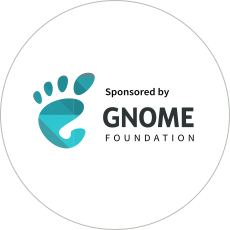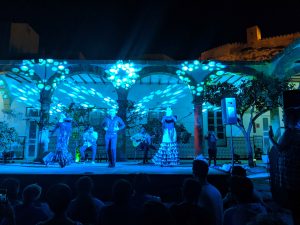Last month, I was fortunate enough to be able to attend GUADEC in Guadalajara. It was thrilling to see everyone in person after a two-year absence. Even better, after many attempts we finally were able to have GUADEC in Mexico!!
For those who don’t know, the genesis of all that came from these chain of events 2016. At the time, I was working at Intel, and one of the kernel developers at Guadalajara, who just happened to be the keynote speaker at GUADEC, connected me to Manuel Haro – he had a conference called CISOL that he was running and needed a keynote speaker.
It so happened that Neil McGovern had recently became the Executive Director of GNOME just a few weeks ago. I told Manuel that Neil would be the better option but he ended up wanting both of us to speak. So we both ended up in Zacatecas, MX. Incidentally, that was when I first met Neil and this sparked the beginning of a beautiful friendship!! So, really it seems quite fitting that his GNOME adventure began and ended in Mexico!!!
The conference itself was great, I enjoyed a number of the talks especially the ones by Endless folks. I missed some that I’m grateful to be able to go back and watch.
I gave a talk around ecosystems and the GNOME community. This was quite a personal talk for me and centered on how communities should always be reaching out to other communities. I used Linux App Summit as an example of how this worked in practice and its effects on the ecosystems. We are mightier as a meta community than we are as individual silos if you want the tl;dr.
It’s mildly ironic that the attendees likely were interested in a technical talk. 🙂 There is a certain amount of self selection there – as a project, we tend to talk about our woes around resource management or growing community – but it’s important that we all have agency and that solving people-problems needs to be a shared goal.
This GUADEC was a very special one for me. My wife, Aarti, also joined me on this trip. While not her first open source conference, this is the first one where she was a speaker/workshop lead. Her workshop was all around understanding Diversity, Equity and Inclusion (DEI) from the point of view of an educator. As a person who teaches young humans, she provided observations, facts and visual presentations to help understand how young girls and persons of color become discouraged from entering STEM fields. Big props to the audience who bought their authentic selves and listened and participated with their full heart and and souls. There was laughter, tears, and authentic heartfelt expressions of wanting to be an ally. To my wife, this was her first exposure to the GNOME community – and they did not disappoint. It was certainly a bonding experience for her with many in the GNOME community. My wife is an amazing human, and I’m lucky to be part of her life and have her light join mine on this journey of ours.
Guadalajara was amazing – the random acts of kindness that we experienced while walking this city made this city special for us. It also felt like home, and by that I mean – it felt like we were in India. The sights, the smells, and the flora. Even the monsoon level rains and the flooding – all familiar things for us. The food was amazing – and it comes down to the fresh, local produce that we as Americans do not appreciate. The intensity of flavors and spice made the same food you get in the U.S. feel bland. We intend to return with the rest of our family and be able to enjoy Mexico a bit more – in the meanwhile, I’ll be working hard on my Spanish so that I can be my authentic self. As a social person, it really kills me that I cannot express myself and forced to use English in a non-English speaking country.
I would like to thank the GNOME Foundation for sponsoring mine and Aarti’s trip.


